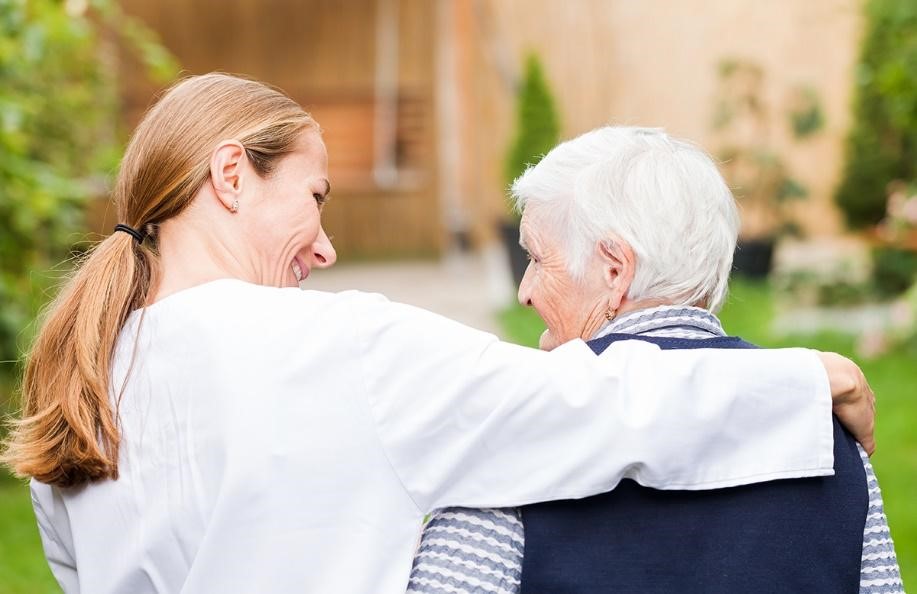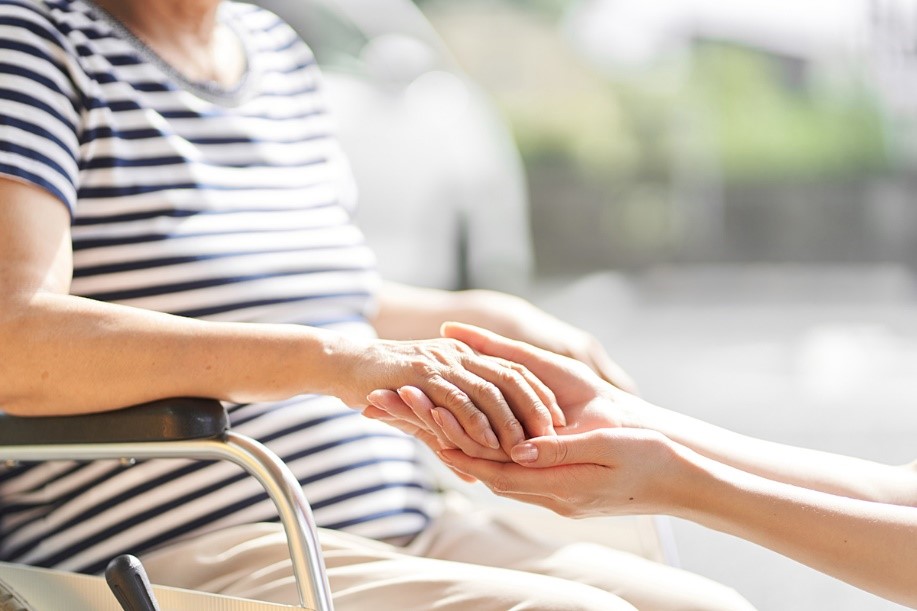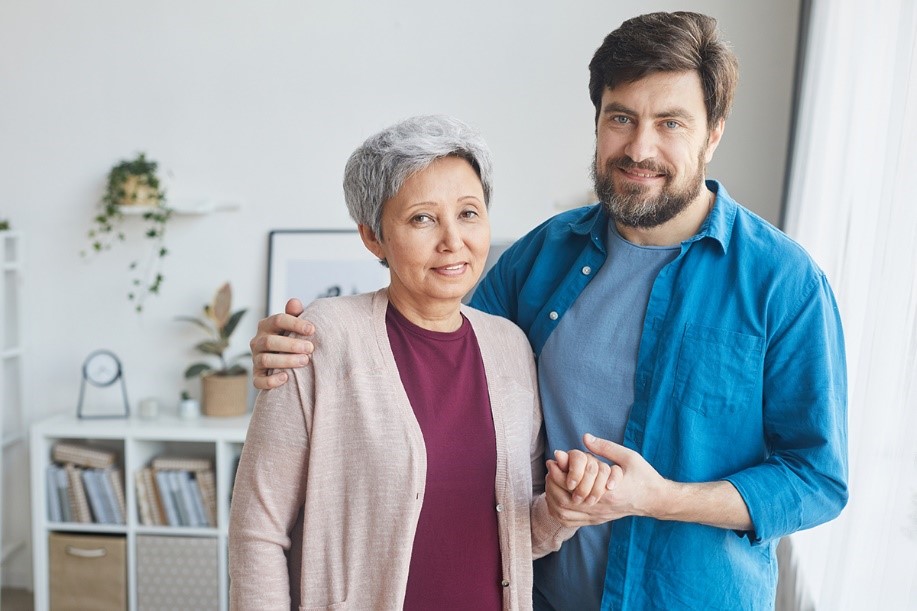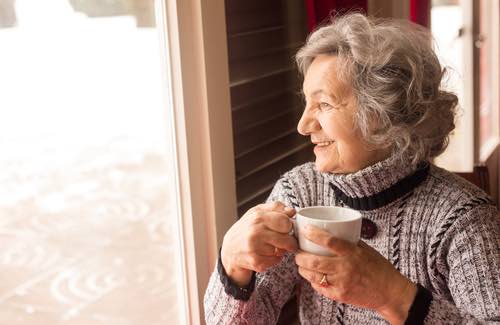
Take These Winter Safety Precautions for Seniors
As people age, their bodies become less capable of handling extreme weather conditions. Seniors lose body heat faster, have less stability as they walk, and may have conditions like thyroid problems, diabetes, or Parkinson’s disease that make it harder to stay warm. If you have elderly parents facing a frosty Ohio winter, be sure to check on them frequently and take precautions to protect them from safety hazards like these:
Hypothermia
Hypothermia is a dangerous condition where a person’s body temperature drops below a healthy range. Older people are more at risk because they have trouble retaining body heat and they may have poor circulation.
What You Can Do:
Start by knowing the warning signs. People with hypothermia tend to have cold skin, a pale or ashy complexion, and may feel confused or sleepy. You may also notice swelling, shivering, or slowed speech. If you see any of these signs, call 911 immediately. You can help prevent hypothermia by encouraging your mom or dad to take extra precautions against the cold:
-
Stay inside as much as possible. If they do go outside, encourage them to dress in warm layers and always wear a hat and scarf.
-
Dress in warm clothes, even inside. Wear socks or slippers, and cover up with a blanket when you are sitting at home.
-
Turn up the thermostat. It’s tempting to turn down the heat to lower electricity costs, but reducing the risk of hypothermia is more important. Keep the thermostat set to at least 68 degrees in the winter.
Falling
Your loved one’s risk of falling increases during the winter due to icy sidewalks and slippery surfaces. Melted snow can also create hazards inside the house if it gets tracked in on shoes or boots.
What You Can Do:
Help your mom or dad keep the driveway and sidewalk cleared and apply salt to walkways. Be sure they have shoes with non-skid soles to help prevent slipping, and equip assistive devices like canes or walkers with rubber tips.
Perhaps the most important thing you can do, however, is to offer assistance. Help your loved one walk to and from the car, keep an eye out for fall risks, and find someone to help them shovel the sidewalk or driveway.
Driving
Poor road conditions increase the risk of accidents for everyone, and seniors are even more susceptible because their reflexes aren’t as quick as they used to be. If an accident does occur, elderly people may experience hypothermia more quickly if they are trapped in the car.
What You Can Do:
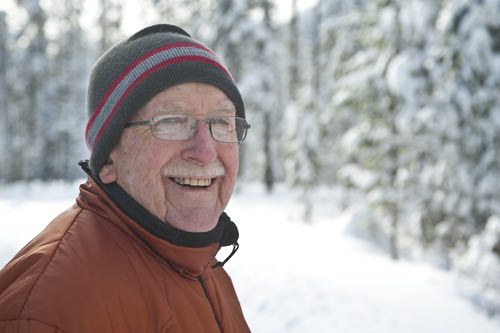
-
Check the windshield wipers, tires, and brakes on your loved one’s car before cold weather hits.
-
Stock the car with emergency supplies such as a flashlight, batteries, blanket, first aid kit, water, rock salt, and a windshield scraper.
-
Give them a cell phone that is easy to use and ask them to call you when they plan to go out for a drive.
-
Keep the gas tank full to reduce the risk of running out of gas and getting stranded.
Losing Power
The primary risk during a winter power outage is that your loved one may experience hypothermia. Seniors may also trip and fall if they try to move around in the dark, or they may not have enough to eat if they rely on an electric stove for cooking.
What You Can Do:
Be sure your family member has an alternative heat source and a battery-operated light, as well as plenty of food that doesn’t require cooking in case power to the stove is lost. Keep walkways clear and look for awkwardly placed items of furniture that may present a fall risk in the dark. It is also wise to have an emergency action plan in place in case the power is out for a long time.
Carbon Monoxide Poisoning
Carbon monoxide is an odorless gas that may be emitted by gas appliances such as heaters, fireplaces, and stoves. Carbon monoxide is deadly not only because breathing it can kill, but also because it is impossible to detect with the human senses.
What You Can Do:
Make sure your loved one has carbon monoxide detectors installed. They are just as vital as smoke alarms and they can save your family member’s life in the event of a problem. Replace the batteries every year since your loved one’s life could depend on those batteries working.
Does Your Senior Loved One Need Companionship Care?
Sometimes the best way to keep your senior loved one safe during the winter is to be sure someone is available to help. If you are worried about your mom or dad living alone during the winter, consider asking a caregiver to check in on your family member and provide assistance as needed. For example, the caregiver could help with grocery shopping so your loved one doesn’t have to drive on icy roads, or they could make sure your mom or dad dresses warmly and help them with routine activities at home.
Winter weather can be dangerous or even deadly for elderly people, but a caregiver can help you reduce the risks and make sure your mom or dad stays safe. To find out more, give us a call today!
{{cta(‘6a691ae8-409b-4b09-a1d5-2864ffe1c1b5’)}}

